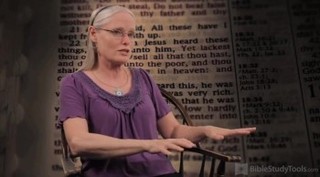
Change Translation
- Recent Translations
- All Translations
Esther 1:13
Share
Listen to Esther 1:13
Settings
Scripture Text Size
13
Now, when a need arose, the king would often talk with certain very smart people about the best way to handle it. They were people who knew both the kingdom's written laws and what judges had decided about cases in the past.
Esther 1:13 Meaning and Commentary
Esther 1:13
FOOTNOTES:
F20 Thalia, sive, l. 3. c. 14, 31. so in Aelian. Var. Hist. l. 1. c. 34.
Then the king said to the wise men that knew the times
Astrologers, as Aben Ezra, that knew the fit time for doing anything; or that had knowledge of ancient times, historians, well read in history, and knew things that had happened similar to this:
for so was the king's manner towards all that knew law and judgment;
it was customary with him in any case of difficulty to have the opinion and advice of those that were expert in the law, and well understood right and wrong. These are called by Herodotus F20 the king's judges.
F20 Thalia, sive, l. 3. c. 14, 31. so in Aelian. Var. Hist. l. 1. c. 34.
Taken from John Gill's Exposition of the Bible
Unlock Deeper Insights: Get Over 20 Commentaries with Plus! Subscribe Now
Esther 1:13 In-Context
11
They were to bring Queen Vashti before him wearing the royal crown. She was gorgeous, and he wanted to show off her beauty both to the general public and to his important guests.
12
But Queen Vashti refused to come as the king had ordered through the eunuchs. The king was furious, his anger boiling inside.
13
Now, when a need arose, the king would often talk with certain very smart people about the best way to handle it. They were people who knew both the kingdom's written laws and what judges had decided about cases in the past.
14
The ones he talked with most often were Carshena, Shethar, Admatha, Tarshish, Meres, Marsena, and Memucan. They were seven very important people in Persia and Media who, as the kingdom's highest leaders, were in the king's inner circle. So the king said to them,
15
"According to the law, what should I do with Queen Vashti since she didn't do what King Ahasuerus ordered her through the eunuchs?"
Videos for Esther 1:13

Copyright © 2011 Common English Bible